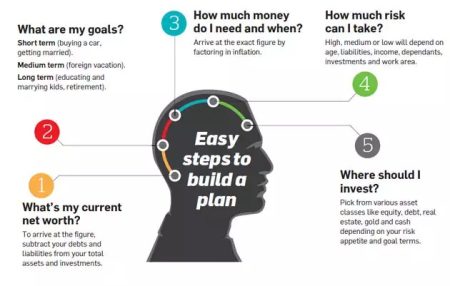Modern life is often a whirlwind of responsibilities and challenges, leaving many individuals grappling with stress. Balancing work deadlines, household tasks, and personal relationships can feel overwhelming. Yet, effectively managing stress is essential for both mental and physical well-being. This article delves into various strategies for managing stress to help you achieve a balanced and fulfilling life. By mastering these techniques, you can enhance your quality of life and overall happiness. Let’s explore some proven methods for alleviating stress and finding peace amidst the chaos.
Understanding the Nature of Stress
Stress is a reaction to challenging circumstances, but when it becomes persistent, it can have detrimental effects on our health. Common triggers of stress include job pressures, financial struggles, and personal conflicts. Prolonged stress can contribute to health issues like high blood pressure, anxiety disorders, and depression. Recognizing the causes of your stress is the first step in effectively managing it. Pinpointing sources of stress enables you to tackle them head-on and find solutions. Moreover, being able to identify signs of stress can help prevent lasting harm to your well-being.
Practical Approaches to Managing Stress
Practicing mindfulness and meditation are effective strategies for reducing stress levels. Practicing mindfulness by focusing on the moment can bring a sense of calm and reduce anxiety. Meditation, on the other hand, involves techniques that promote relaxation and mental clarity. For beginners, starting with breathing exercises can be quite beneficial. Allocate a few minutes each day to sit quietly, close your eyes, and concentrate on your breath. Over time, you may experience a decrease in your stress levels. Moreover, using guided meditation apps can offer support for newcomers to the practice. Research indicates that consistent mindfulness practices can enhance emotional control and boost well-being.
Incorporating physical activity into your routine is crucial for managing stress effectively. Exercise triggers the release of endorphins, which act as natural mood elevators. Whether it’s taking a walk, practicing yoga, or dancing to music you love, engaging in physical activity can help you feel more at ease and invigorated. Even a brief daily exercise regimen can significantly impact how you cope with stress. Adding movement to your schedule may also improve the quality of your sleep—something often disrupted by stress. Participating in outdoor activities such as hiking or cycling amplifies the stress-relieving effects by connecting you with nature.
Your dietary choices play a significant role in influencing your stress levels. Eating a rounded diet filled with fruits, veggies, whole grains, and lean proteins can positively impact your mood and energy levels. It’s best to steer clear of too much caffeine and sugar to avoid feeling anxious or experiencing mood swings. Instead, focus on consuming foods rich in vitamins and minerals like leafy greens and nuts to support your brain health. Remember to stay hydrated since dehydration can lead to increased stress levels. Planning your meals in advance ensures you have nutritious options on hand, reducing the urge to snack on unhealthy foods when stressed.
Exploring the Role of Medical Marijuana in Managing Stress
An Overview of Medical Marijuana
Medical marijuana has become popular for treating conditions such as chronic pain and anxiety due to its ability to help relax both the mind and body for stress relief. Learning about how medical marijuana functions and its potential advantages can assist you in making informed choices regarding its use. Different strains of marijuana offer varying effects, so it’s crucial to find one that aligns best with your needs. Seeking guidance from an expert is advisable for personalized recommendations and safe usage practices.
The Positive Impact on Stress Reduction
Many individuals have reported that medical marijuana has been beneficial in easing stress and anxiety. It can bring about a sense of peace and well-being for individuals facing ongoing stress. However, it’s crucial to approach its use responsibly and seek guidance from a healthcare professional. Consistent use of medical marijuana may aid in enhancing sleep patterns, thus lowering stress levels further. It can also complement other stress management methods for a holistic approach. Being aware of potential side effects and legal implications is key to using it effectively.
In Florida, medical marijuana is recognized as a viable treatment for various conditions, including stress-related disorders such as PTSD. For residents experiencing significant stress or anxiety, having access to medical marijuana can be a valuable component of their stress management plan. However, to legally obtain and use medical marijuana in Florida, individuals must have a medical marijuana card.
For those already using medical marijuana as part of their stress management routine, ensuring that their Florida medical marijuana card remains current is crucial. Adhering to state regulations guarantees uninterrupted access to this beneficial therapy. To maintain access, it’s important to renew your Florida medical marijuana card. The renewal process for your card is generally straightforward, but it’s essential to stay on top of renewal deadlines to avoid any treatment interruptions. Monitoring expiration dates and renewal criteria can help ensure continuous access to medical marijuana. Moreover, renewing your card offers an opportunity to reassess and modify your treatment plan in consultation with your healthcare provider.
Additional Stress Management Techniques
Time Management Strategies
Efficient time management can significantly alleviate stress levels. Prioritize tasks, set realistic objectives, and divide larger projects into smaller, manageable tasks. This method is helpful in preventing feelings of being overwhelmed and enables you to focus on one task at a time. Using tools such as planners and digital calendars can assist in staying organized and maintaining focus. Setting aside time slots for work, relaxation, and self-care ensures a balanced approach to daily tasks. Reflecting on your progress and adjusting your time management techniques when necessary can boost productivity and decrease stress levels.
Support from Others
The importance of having a strong support network cannot be overstated. Connecting with friends and family offers emotional support and practical assistance. If you’re feeling isolated, consider joining a support group or participating in community events. Sharing your experiences with others can help lighten your emotional burden and offer new perspectives on your challenges. Regular social interactions can also uplift your mood and overall wellness. Engaging in volunteer work or helping others can bring a sense of purpose and satisfaction, thereby reducing stress levels.
Relaxation Practices
Practicing relaxation techniques like deep breathing, progressive muscle relaxation, and aromatherapy proves to be highly effective in alleviating stress. Deep breathing exercises have a calming effect on both the mind and body, while progressive muscle relaxation involves tensing and releasing each muscle group slowly. Aromatherapy with essential oils like lavender or chamomile can induce feelings of tranquility and calmness. Incorporating these strategies into your daily schedule can help you carve out moments of peace in the midst of a busy day. Trying out different methods can assist you in identifying the ones that resonate most with you. Consistent practice of relaxation techniques can result in long-term enhancements in stress handling.
Crafting a Personalized Strategy for Coping with Stress
Each person experiences stress uniquely, so it’s crucial to discover techniques that suit your needs. Mixing and matching approaches can establish a well-rounded method for managing stress. Monitoring your progress and making tweaks along the way is key. Remember, the aim is to pinpoint what aids you in maintaining equilibrium. Jotting down your stress triggers and reactions can yield valuable insights into how you handle stress. Seeking input from loved ones, friends, or professionals can provide new perspectives and encouragement. Dedication to following through with your stress management blueprint has the potential to bring about enduring enhancements to your quality of life.
Closing Thoughts
Stress is an inevitable aspect of existence, but it doesn’t have to dictate your life. By integrating these stress management tactics into your daily regimen, you can achieve harmony and enhance your general well-being. Begin with small actions and progressively expand your repertoire of stress management tools. You deserve a life that is enriching and serene at the same time. Take that first step today and uncover tranquility amidst the turmoil. By adopting these habits, you can become a more resilient and happier version of yourself. Keep in mind that every step you take contributes to building a harmonious and less hectic lifestyle.














